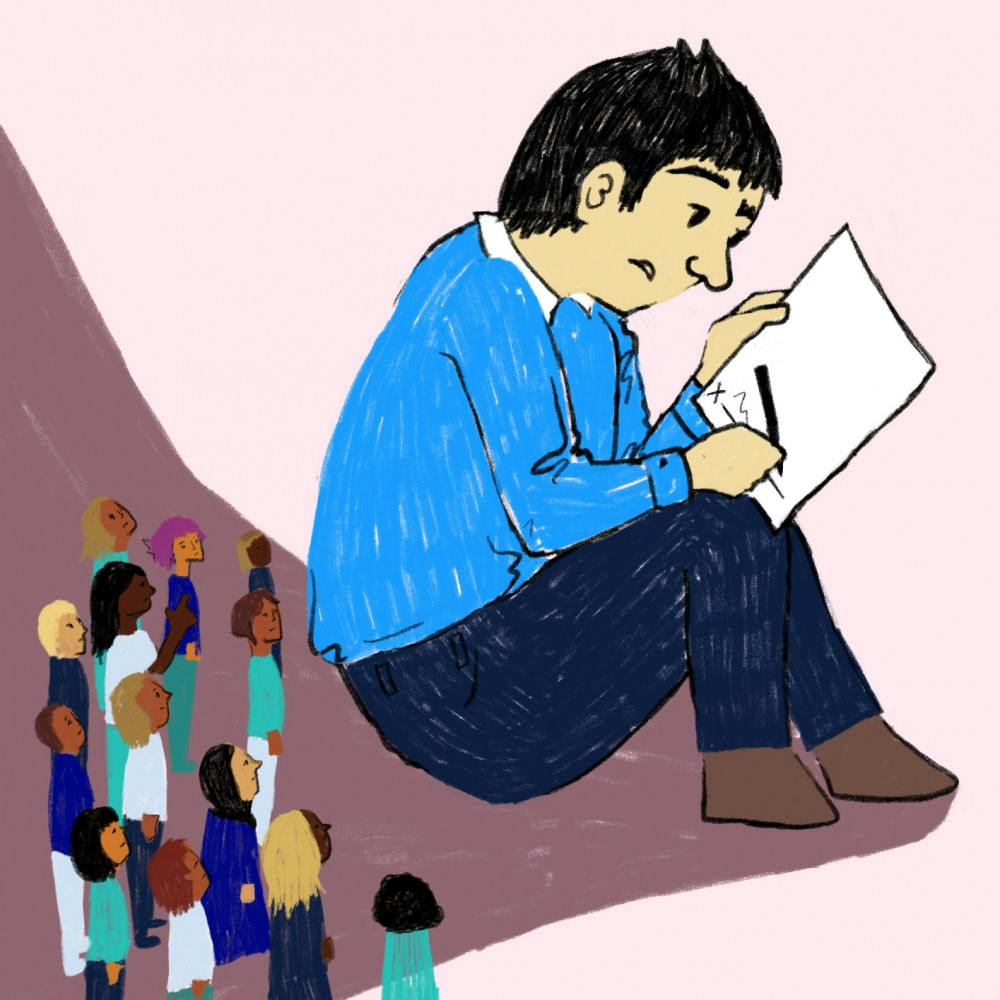Will concerns of diversity, equity and inclusion be considered as the transition begins?

As Western’s Honors Program begins the transition to being called the Honors College, expected to finalize in fall 2022, honors students of color remain concerned about diversity, equity and inclusion moving forward.
Sargun Handa, AS Senate Pro Tempore and Honors Program student voiced concerns over the Honors Program’s intentions in renaming the prestigious program, which is a stated tactic for boosting recruitment at the Board of Trustees meeting on April 2.
“It is incredibly unethical to recruit more diverse populations into an organization that has historically harmed [them] without addressing those concerns as a historically anti-Black and anti-BIPOC organization,” Handa said.
Silvia Leija, a third-year honors student and chair founder of the Honors Students of Color Board, experienced exclusive spaces that made her feel out of place as she has progressed in the Honors Program, she said.
“I think that [being a student of color in the Honors Program] has been a little harder,” Leija said.
In a predominantly white, upper middle class setting, Leija said her ethnicity makes it harder to navigate the Honors Program.
Tia McNair, vice president for diversity, equity and student success at the Association of American Colleges and Universities stressed the key position that institutions hold in fostering inclusive environments.
“Higher education institutions can create intentionally designed feedback structures for students to share their concerns and engage them in a process for developing an expansive learning environment that is culturally responsive and race conscious,” McNair said. “Campus educators should take a leadership role in this process.”
The Honors Students of Color Board thinks critically about the Honors Program’s actions and inaction and is always working to improve experiences for students of color in the Honors Program through several major goals, Leija said.
“Our main focus is the curriculum,” she said. “Students go through a specific first-year curriculum that takes them through culture and traditions. Personally, what I read was things like Frankenstein. And then your last quarter [as a first-year student], you'll go through [what] I call the diversity piece. I took a class on India, but it was taught by a white man. The whole point of the Honors Program is so that students can come out more cultured, quote, unquote. And that whole entire year, it's like, Western literature after Western literature, after just one class where you can maybe possibly learn something new. Our goal is really to tackle that curriculum, and include more voices that haven't been heard.”
Scott Linneman, director of the Honors Program said that the program is dedicated to a changing curriculum with student input.
“We believe that curriculum should never settle, never stop evolving,” Linneman said. “The dynamic classrooms we build and the dynamic learners who inhabit them require equal dynamism from all facets of instruction. With the Honors Program’s transition into a college, curricular innovation will remain one of our foundational concerns — The Honors Board serves an advisory role as the program’s curriculum committee and our student voices are highly valued.”
In addition to curriculum changes, the Honors Students of Color Board hopes to make changes in several other capacities.
“Another [area] is professors who, you know, look like us and have the same experiences as us, which is a little bit harder because we don't have tenure track,” Leija said. “ We've also been working on a mentorship program for students of color, affinity housing for honors students of color and scholarships specific to students of color within the Honors Program.”
Inclusive environments start at a structural level, which requires action from institutions, McNair said.
“Programs should examine their recruitment and retention processes, and their educational designs to make sure they are culturally responsive and race conscious,” McNair said. “If they are not, then [they should] engage in a process for transforming the program into an educational experience where racially minoritized and marginalized students can thrive.”
The Honors Program has seen increased numbers of students and faculty of color in recent years, and Linneman is hopeful the trend will continue upwards as the Program transitions into the honors college.
“Our continued commitments to recruiting and supporting students of color, and to inclusive learning environments, will be a crucial component of the transition,” Linneman said. “The proportion of Honors students of color has been increasing over the last five years. Though the last confirmations are still coming, it appears the fall 2021 cohort will be about 26% students of color. Similarly, the number of faculty of color teaching Honors classes has increased. Our funding request would allow us to work with departments across campus to hire more diverse faculty.”
The Honors Students of Color Board understands that increased funding to the college has the potential to further their goals, but commitment by administration is required, Leija said.
“I'm extremely grateful that I'm allowed to do the work that I've been doing, as frustrating as it is … I do support the Honors Program becoming a college, I just want assurance that we're going to get resources for students of color,” Leija said.
Zoë Parker is a campus news reporter for The Front and a third-year public relations student minoring in international business and the German language. Her work focuses on Western’s budget, administration, and Board of Trustees, as well as other campus-related news. You can contact her at zoeparker.thefront@gmail.com.





